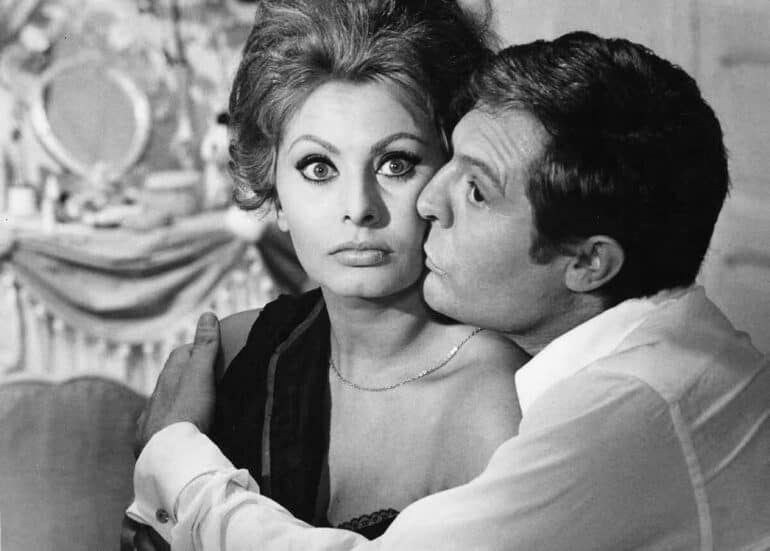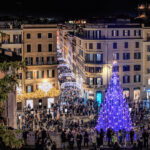18 Italian films to watch
Did you know Italy holds the record for the Best Foreign Language Film Oscars with a total of 14 since 1956?
Since the invention of cinema, names like Vittorio De Sica, Roberto Rossellini, and Michelangelo Antonioni continue to inspire and influence filmmakers around the world. From neorealism to post-modernism, the evolution of Italian cinema has created some of the most unique and entertaining movies. And as the birthplace of Art Cinema, movies set in Italy have become synonymous with style and flair.
If you’re a confessed cinephile, check out the best Italian movies to add to your collection and support movies made in Italy.
INSPIRATION
17 of Rome’s famous film locations
- Roma Città Aperta (Rome Open City)
- Ladri di Biciclette (The Bicycle Thieves)
- I Soliti Ignoti (The Usual Suspects)
- La Dolce Vita (The Sweet Life)
- 8 1/2
- Ieri, oggi e domani (Yesterday, today and tomorrow)
- Matrimonio All’Italiana (Marriage Italian Style)
- Il Buono, il Brutto, il Cattivo (The Good, the Bad and the Ugly)
- Blow up
- Suspiria
- Una giornata particolare (A Special Day)
- Nuovo Cinema Paradiso (New Cinema Paradise)
- Mediterraneo
- Il postino (The postman)
- La Vita è Bella (Life Is Beautiful)
- I Cento Passi (One Hundred Steps)
- La meglio gioventù (The best of youth)
- La grande bellezza (The Great Beauty)
Roma Città Aperta (Rome Open City)
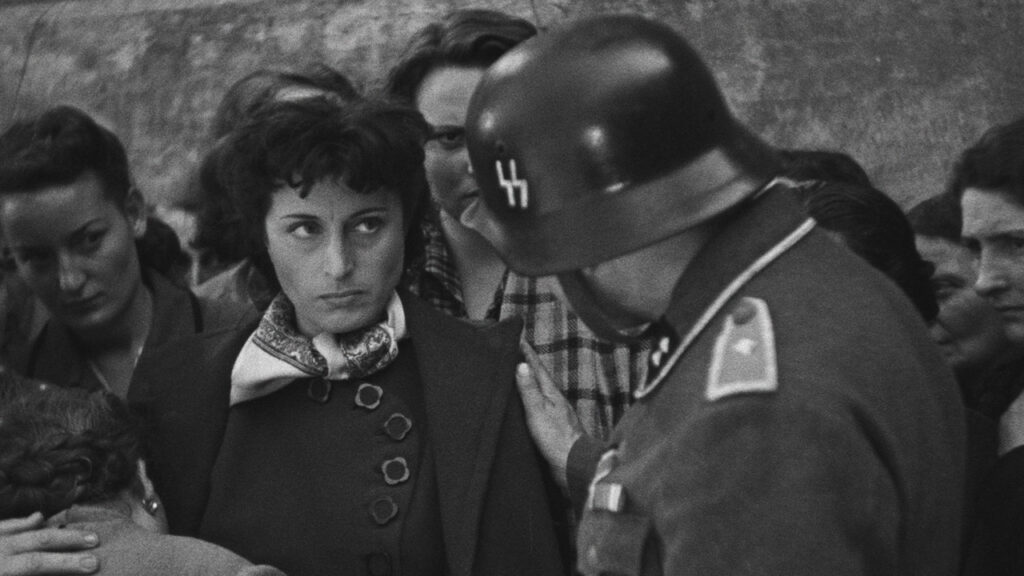
Roma Città Aperta is a 1945 Italian neorealist war drama film directed by Robert Rossellini in one of his earlier films.
The film is widely regarded as one of the most important films in Italian cinema history and marked the start of the Italian neo-realist movement. It also helped spark American interest in foreign language cinema.
Ladri di Biciclette (The Bicycle Thieves)
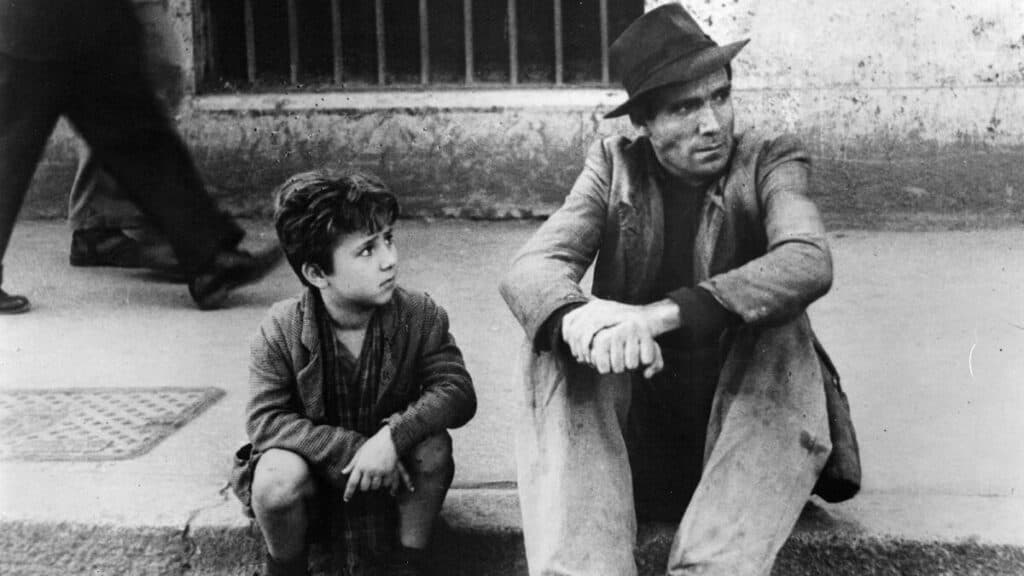
Directed by critically acclaimed director and actor Vittorio De Sica, Ladri di Biciclette is a 1948 neorealist drama film.
Ladri di Biciclette successfully reflects social reality, poverty, injustice, and the cruelty of modern life. For De Sica, it cemented him as one of Italy’s most influential and remarkable filmmakers of all time.
I Soliti Ignoti (The Usual Suspects)
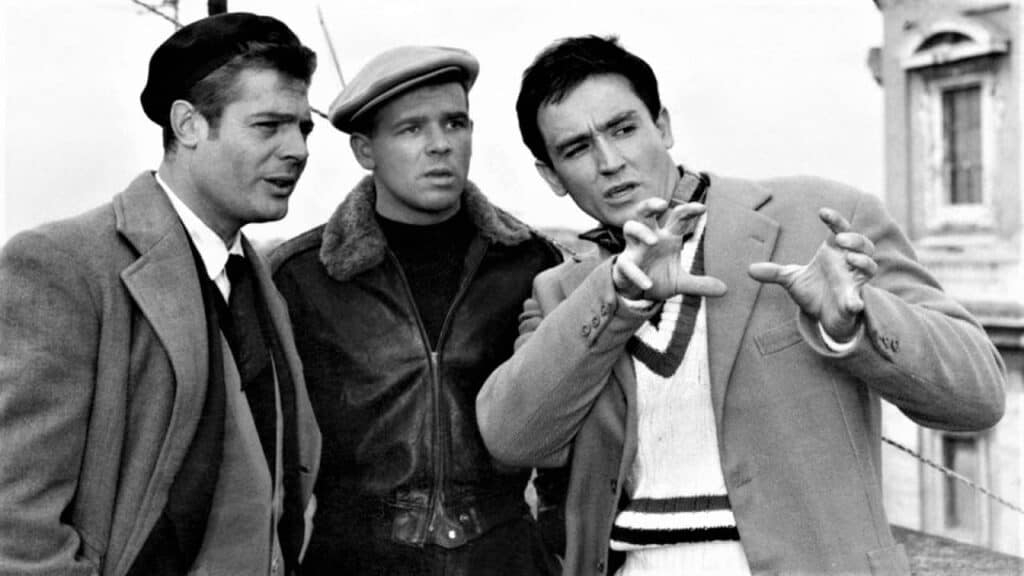
I Soliti Ignoti is a 1958 Italian black and white comedy film directed by Mario Monicelli.
Set in and around Rome, the comedic masterpiece is a story that follows a group of robbers attempting to pull off the heist of their lives. The title refers to the usual “unknown” suspects for a crime as they move from one mishap to another. The film sets itself apart from American comedy, which focuses on constant punchlines. Instead, I Soliti Ignoti deals with everyday issues that ordinary people face and can relate to as a way to inject humor.
La Dolce Vita (The Sweet Life)
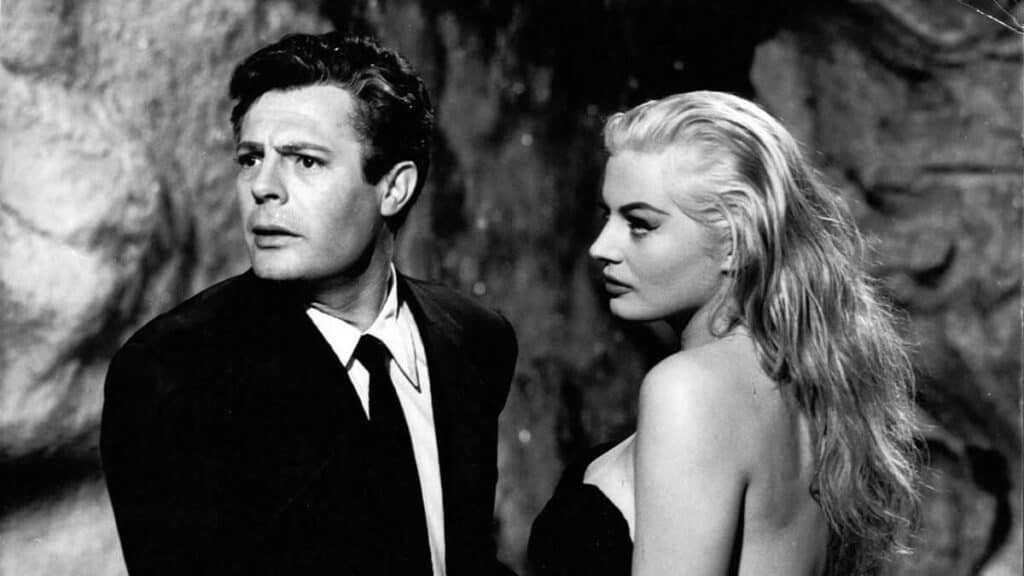
La Dolce Vita is a widely popular 1960 comedy-drama film directed by Federico Fellini.
La Dolce Vita is Italian for “the sweet life” or “the good life.” Set in Rome, the film contains a series of stories following a week in the life of gossip journalist Marcello Rubini and his search for love and happiness. There are plenty of unforgettable scenes broken into a series of vignettes that defy the traditional narrative film structure. It landed La Dolce Vita four Academy Award nominations.
8 1/2
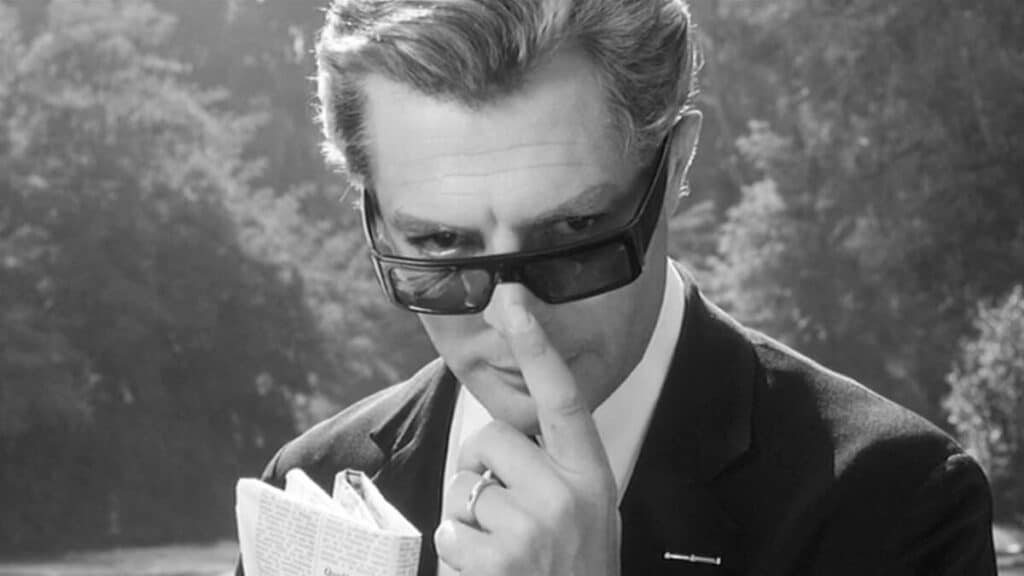
8 1/2 is a 1963 Italian surrealist comedy-drama film directed by Federico Fellini.
The title refers to Fellini’s self-reflexive theme of making his eighth-and-a-half film. In an obvious reference to the director himself, 8 1/2 follows troubled Italian filmmaker Guido Anselmi as he struggles with his conscience, unable to come up with another film idea after his recent hit. It explores themes of stifled creativity, the fear of aging, and the frivolity of society. Today, 8 1/2 is considered one of the most influential movies of all time.
Ieri, oggi e domani (Yesterday, today and tomorrow)
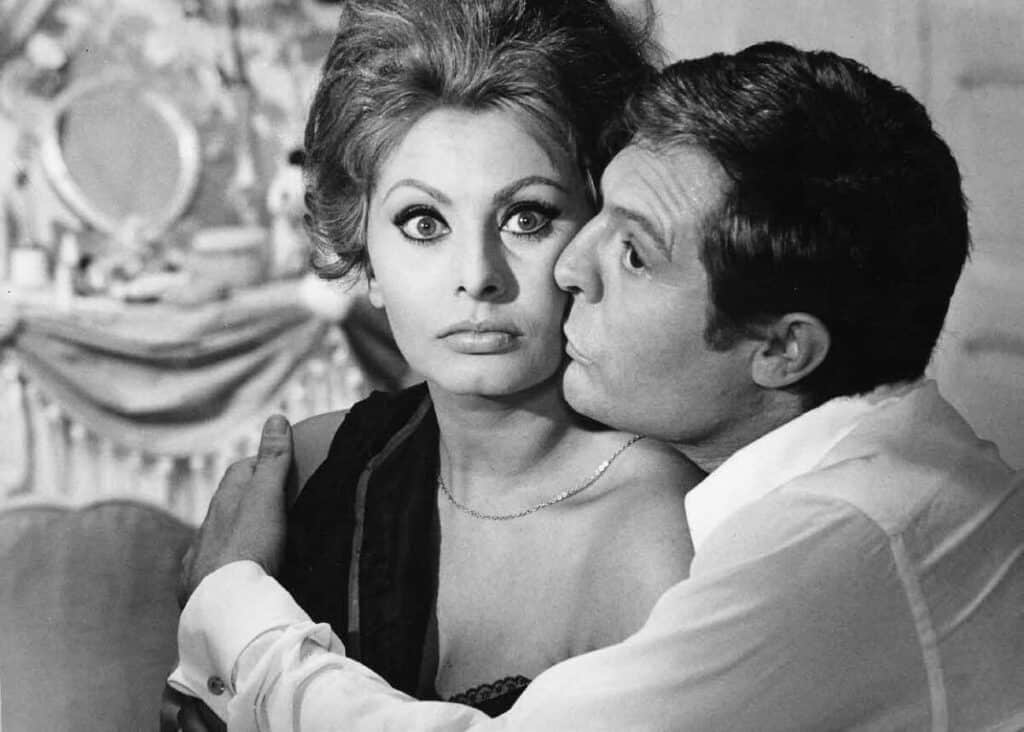
Ieri, oggi e domani (Yesterday, today and tomorrow) is a 1963 comedy by Vittorio De Sica, which won the academy award for best foreign film at the 37th academy awards.
The film is divided into three short stories about three very different couples, representing various sectors of society in the Italian cities of Naples, Rome and Milan. Sophia Loren and Marcello Mastroianni play the female and male roles of each couple.
Matrimonio All’Italiana (Marriage Italian Style)
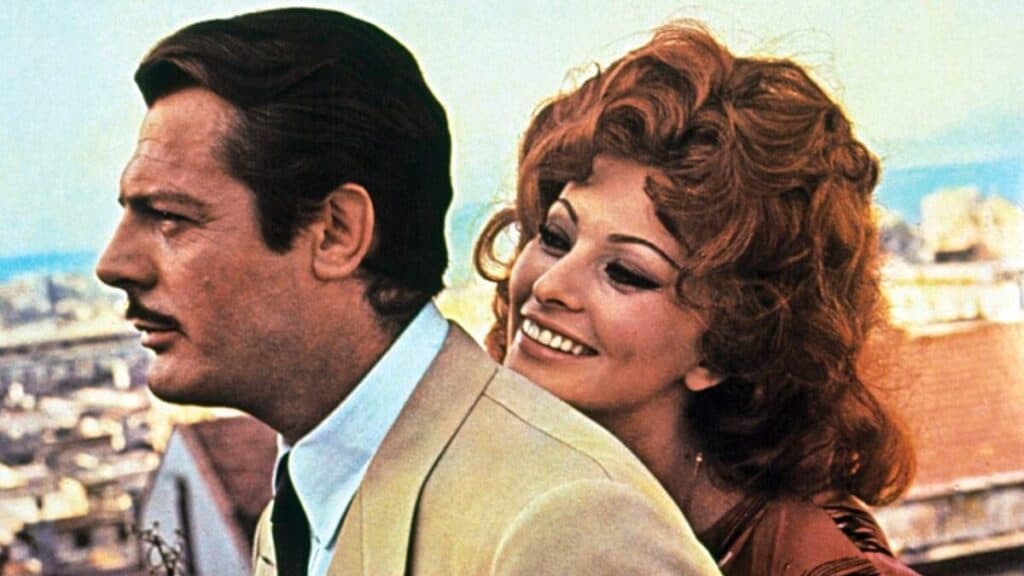
Matrimonio All’Italiana is a 1964 film directed by Vittorio De Sica. The film incorporates elements of drama, comedy, and romance with Sophia Loren and Marcello Mastroianni playing the titular roles.
Set in Naples during World War II, the film follows Domenico (played by Mastroianni), a successful businessman who begins an affair with 17-year-old Filumena (Loren). When he refuses to wed her, Filumena fakes illness to lure him to the alter. It explores themes of relationships, love, and maturity and was nominated for an Academy Award for Best Foreign Language Film and Loren for Best Actress in a Leading Role.
Il Buono, il Brutto, il Cattivo (The Good, the Bad and the Ugly)
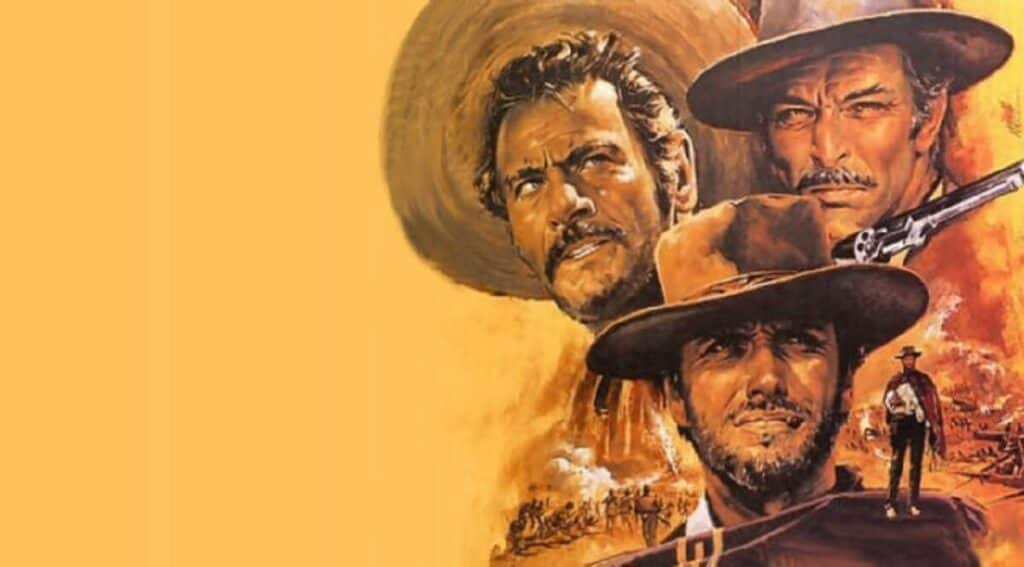
Il Buono, il Brutto, il Cattivo is a 1966 Italian epic Spaghetti Western film directed by Sergio Leone.
The film is widely popular in part due to American actor Clint Eastwood’s starring role. The Spaghetti Western is a subgenre of Western films made popular by Italian filmmakers from the early 1960s to the late 1970s. Unlike its American comrade, the protagonist isn’t always the “good guy.” Il Buono, il Brutto, il Cattivo follows bounty-hunter Blondie (Eastwood), the murderous Angel Eyes, and the bandit Tuco as they cross the American Southwest on the hunt for buried gold. Fun fact: Leone became one of the few Italian directors known for their Western films.
Blow up
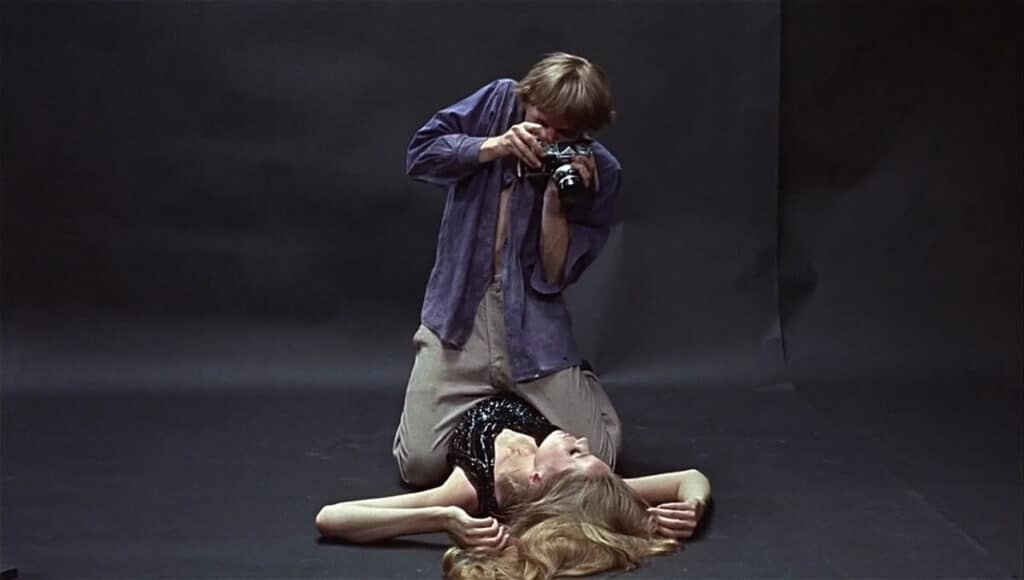
Blow Up is a masterpiece by Michelangelo Antonioni set in 1970s London. It’s about a possible murder case in one of the cities’ parks. The only eye witness is a young and successful fashion photographer and the narrative follows his search for truth in a seemingly uninterested world.
Suspiria
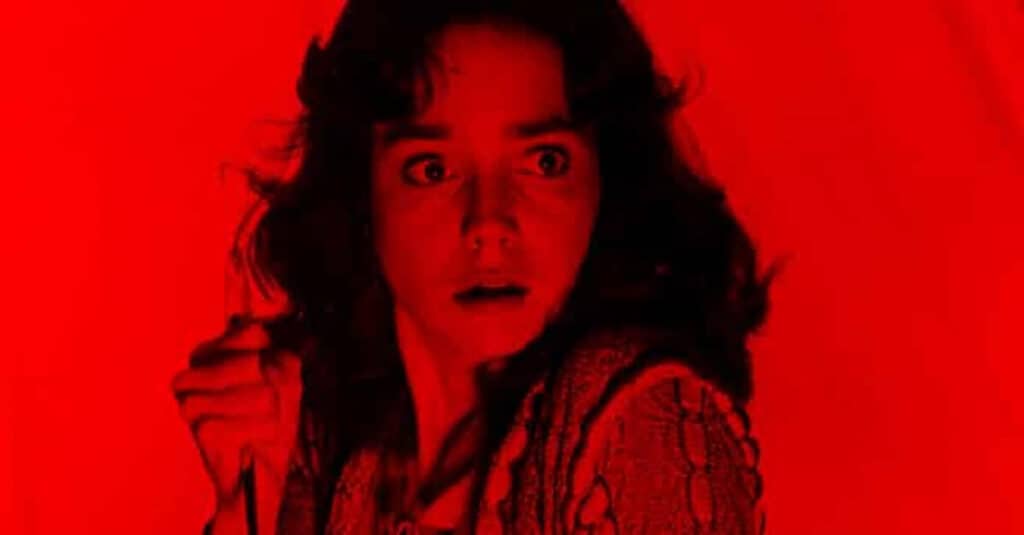
Suspiria is a 1977 Italian supernatural horror film directed by Dario Argento. The film is loosely adapted from Thomas De Quincy’s 1845 essay Suspiria de Profundis.
The film follows an American ballet student, Suzy Bannion, who transfers to a prestigious German ballet academy only to realize that the school holds dark secrets after a series of murders. Despite the film being set in Germany, production was shot at De Paoli studios in Rome. American distributors were hesitant to release Suspiria due to its violent nature, but it was eventually released, and in 2018, a remake was made by Italian director Luca Guadagnino.
Una giornata particolare (A Special Day)
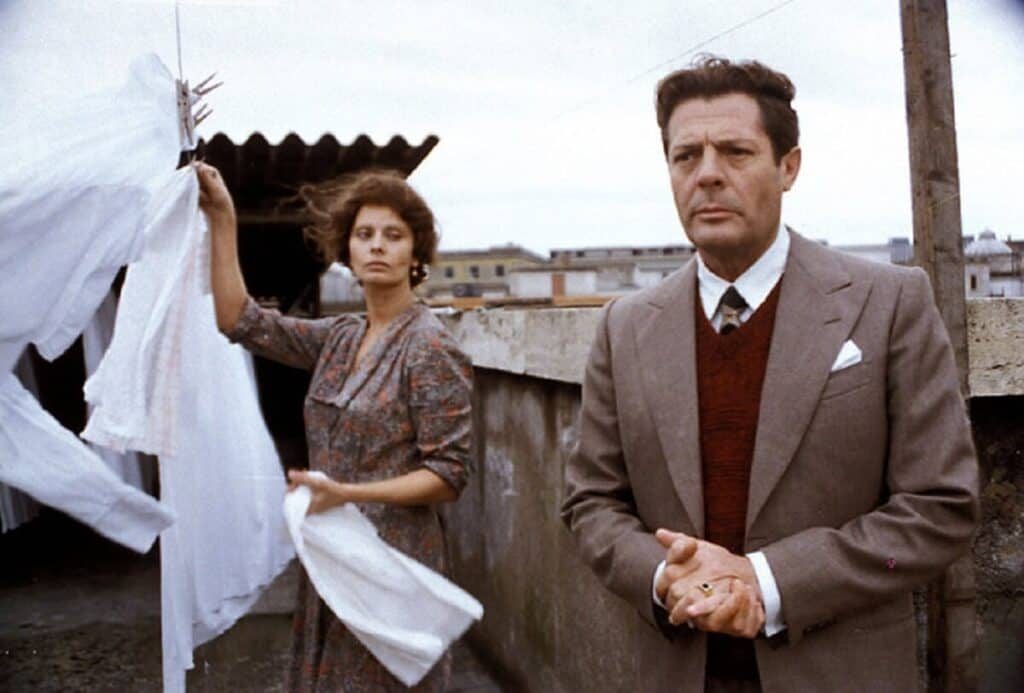
Una giornata particolare is a 1977 film by Ettore Scola. Set in Rome in-between the two world wars it closes in on a day in the life of Antonietta (Sophia Loren), local housewife, whose husband and six children go out to see Hitler’s visit to Mussolini. A domestic incident brings her to meet her neighbour Gabriele (Marcello Mastroianni), and an unexpected and deep connection develops.
Nuovo Cinema Paradiso (New Cinema Paradise)
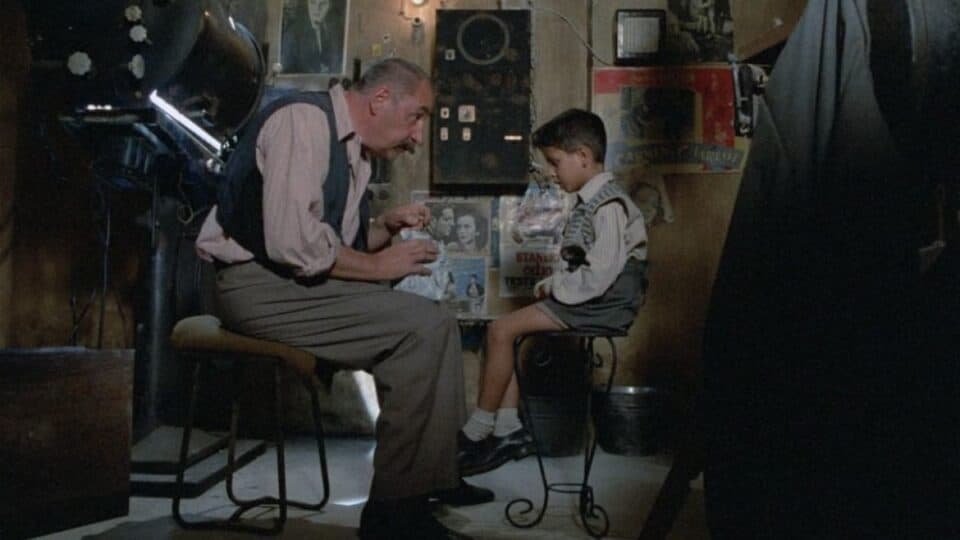
Nuovo Cinema Paradiso is a 1988 Italian drama film directed and written by Giuseppe Tornatore. It is a widely acclaimed film and won the Academy Award for Best Foreign Langage Film at the 62nd Academy Awards.
The film follows a filmmaker who fondly remembers his childhood as a young boy who fell in love with cinema and his friendship with the cinema’s projectionist. The film was shot in Bagheria, Sicily, which was Tornatore’s hometown. The film largely draws upon the director’s own childhood experiences in his native Sicilian Village. It’s a must-see for those who love the magic of the movies.
Mediterraneo
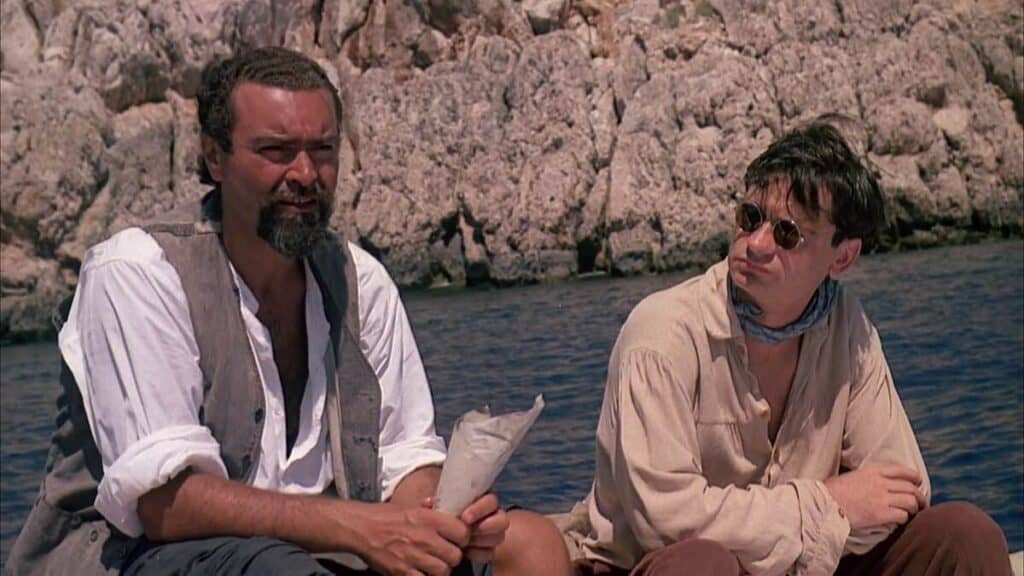
Mediterraneo is a 1991 Italian war comedy-drama film directed by Gabriele Salvatores. It won the Academy Award for Best Foreign Langage Film at the 64th Academy Awards.
Set during World War II, the film follows an Italian Army unit as they occupy an isolated Greek island for the duration of the war. As they ease into the idyllic Greek lifestyle, they begin to forget about war and seek out romance. The film’s plot is loosely based on Renzo Biasion’s autobiography “Sagapò” with the shooting taking place on the Greek island of Kastellórizo.
Il postino (The postman)
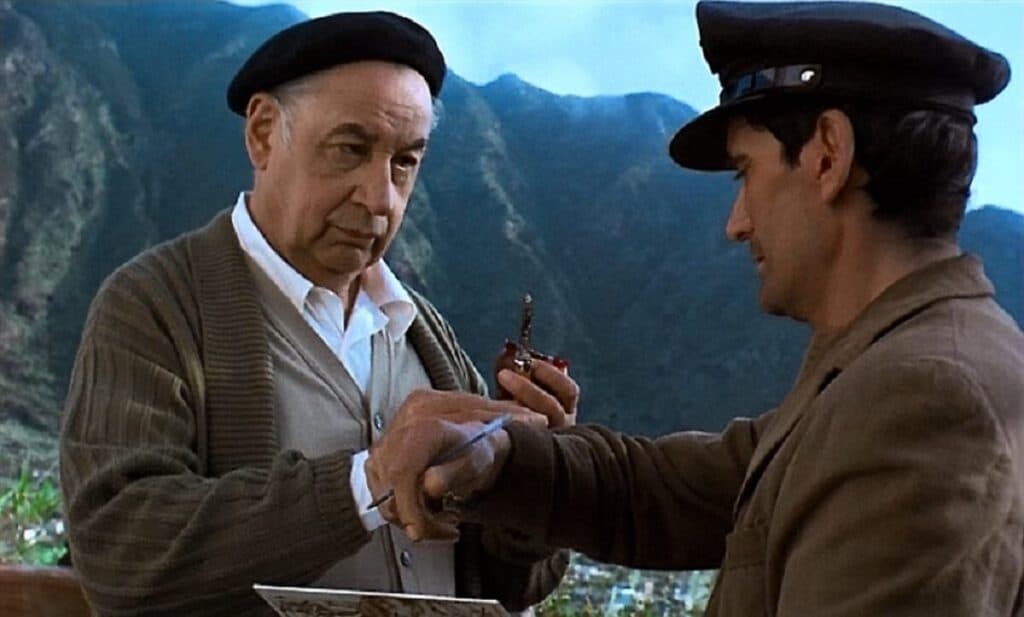
Il Postino is a 1994 film by Massimo Troisi and Michael Radford. The film tells the fictional story of the encounter between a local postman (Troisi) and the Chilean poet Pablo Neruda (Philippe Noiret) in the island of Procida. The two form a beautiful friendship and the postman learns to love poetry and envisage it in the forms of his island.
La Vita è Bella (Life Is Beautiful)
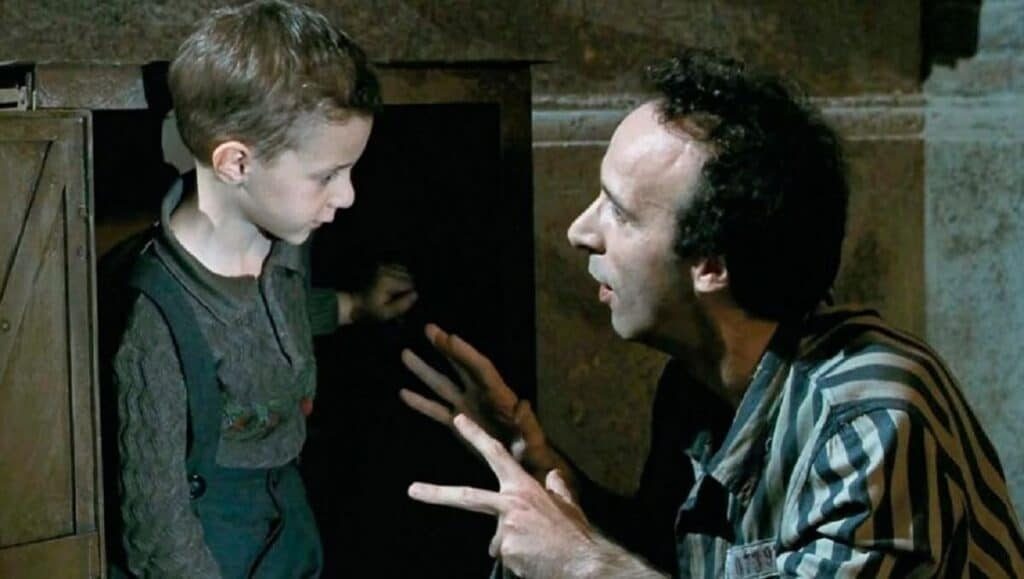
La Vita è Bella is a 1997 comedy-drama film directed by and starring Roberto Benigni, who also co-wrote alongside Vincenzo Cerami.
Set in 1930s Italy, the film follows a Jewish waiter named Guido Orefice (Benigni) who lives a happy life with his wife and son until the occupation of Italy by German forces. In an attempt to protect his family, Guido uses his imagination to pretend that their time in the camp is merely a game. The power of love and bravery are at the forefront of this thought-provoking piece.
I Cento Passi (One Hundred Steps)
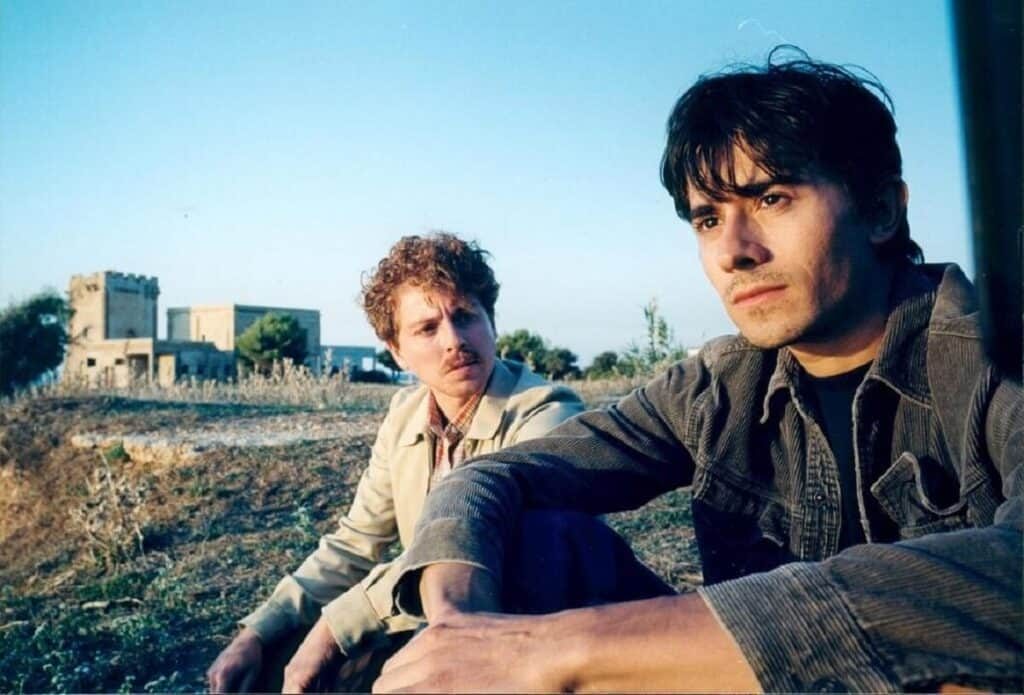
I Cento Passi is a 2000 true-crime biographical film directed by Marco Tullio Giordana. It is about the life of Giuseppe “Peppino” Impastato, an Italian political activist who opposed the Mafia.
The title refers to the number of steps (one hundred) that was the distance between the Impastatos’ house and the house of Tano Badalamenti, a high-ranking Mafia boss. This is a powerful movie depicting a real-life left-wing activist who spoke against the Mafia when no one else dared to. A must-see for those interested in the biopic genre.
La meglio gioventù (The best of youth)
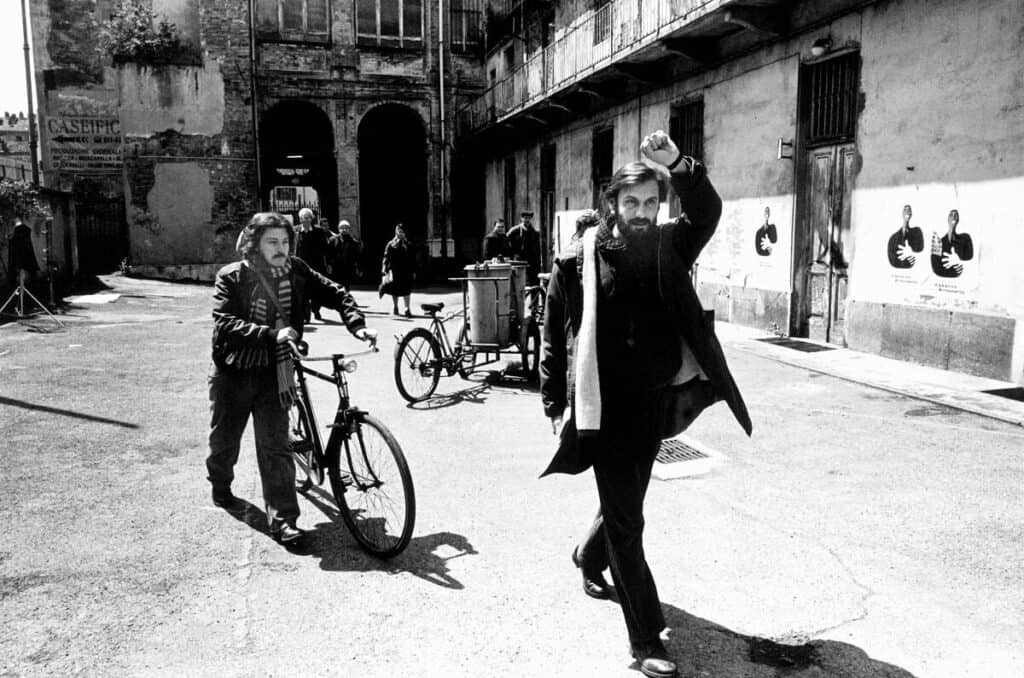
La Meglio Gioventù runs through several important moments of Italian history, from 1966 to 2003. The director, Marco Tullio Giordana narrates this period through the lives of two brothers Nicola (Luigi Lo Cascio) and Matteo (Alessio Boni) as they pass from youth to adulthood.
La grande bellezza (The Great Beauty)
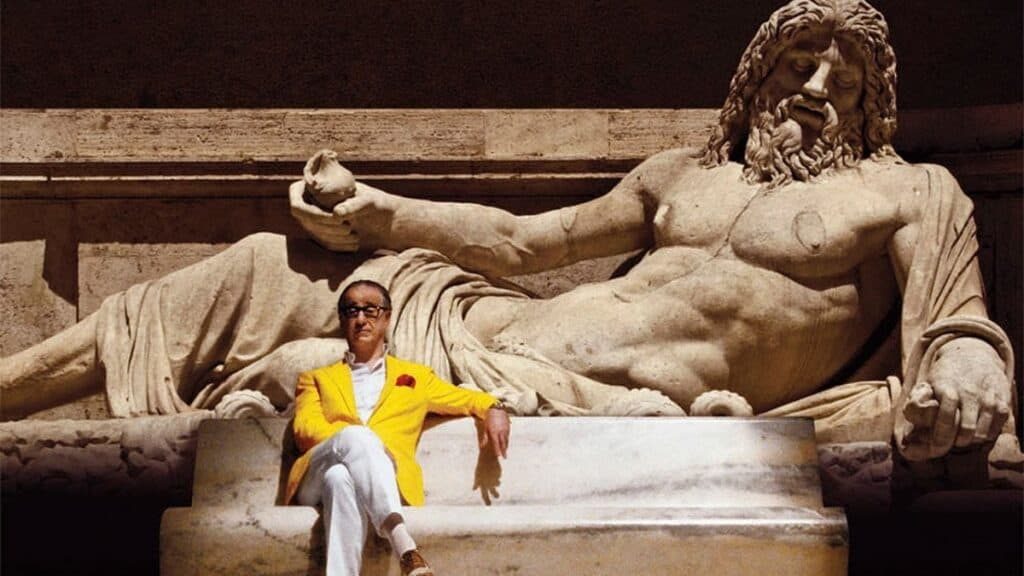
La Grande Bellezza is a 2013 film by Paolo Sorrentino, for which he won best foreign film at the 2014 academy awards. Its narrative follows Jep Gambardella (Toni Servillo), a writer and socialite in Rome whose sixty-fifth birthday sparks new reflections toward the life he leads. The film shows a particularly lavish and extraordinary Rome and the realities of its upper classes.
INSPIRATION
Scenes And Secrets From La Grande Bellezza


